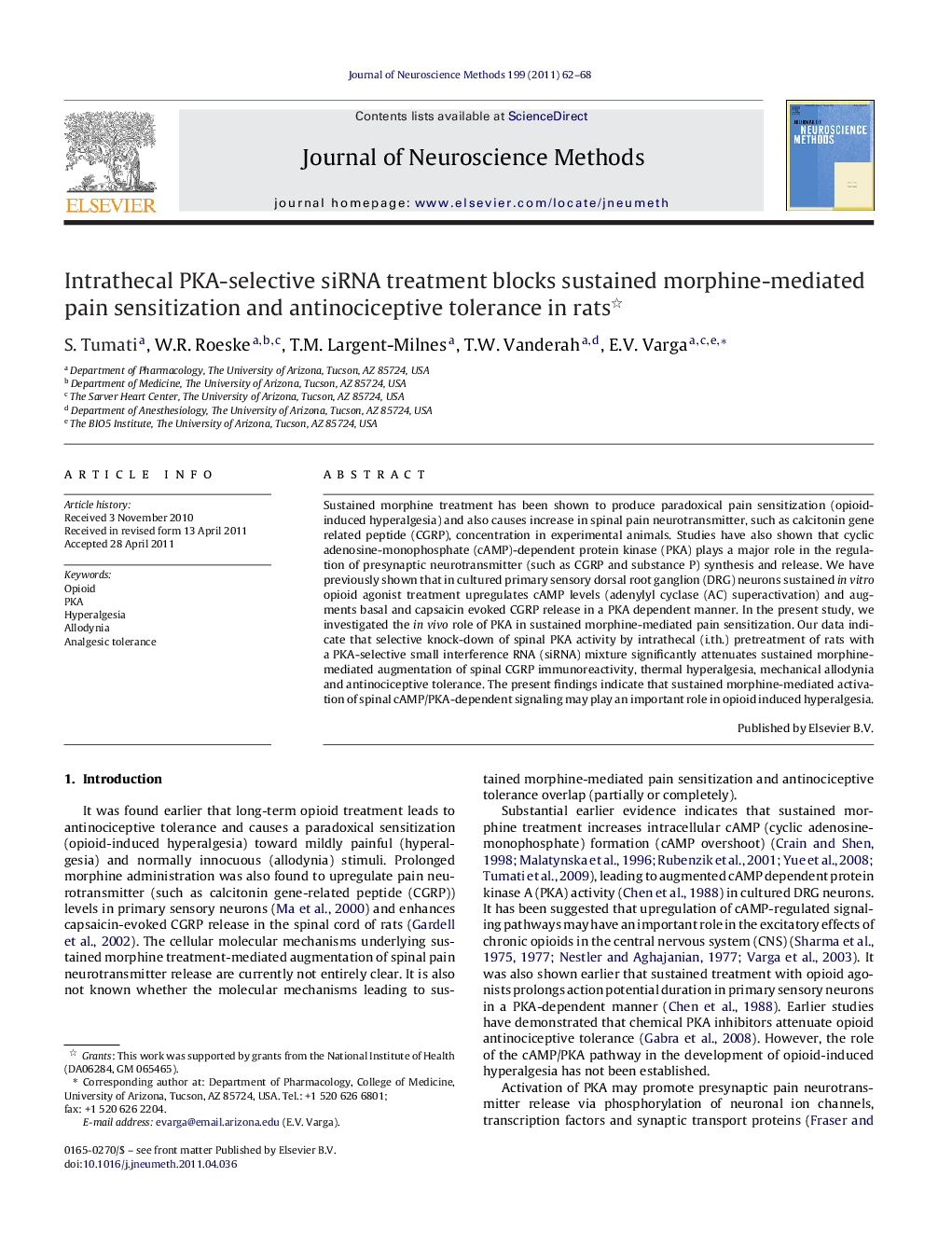| Article ID | Journal | Published Year | Pages | File Type |
|---|---|---|---|---|
| 4335396 | Journal of Neuroscience Methods | 2011 | 7 Pages |
Sustained morphine treatment has been shown to produce paradoxical pain sensitization (opioid-induced hyperalgesia) and also causes increase in spinal pain neurotransmitter, such as calcitonin gene related peptide (CGRP), concentration in experimental animals. Studies have also shown that cyclic adenosine-monophosphate (cAMP)-dependent protein kinase (PKA) plays a major role in the regulation of presynaptic neurotransmitter (such as CGRP and substance P) synthesis and release. We have previously shown that in cultured primary sensory dorsal root ganglion (DRG) neurons sustained in vitro opioid agonist treatment upregulates cAMP levels (adenylyl cyclase (AC) superactivation) and augments basal and capsaicin evoked CGRP release in a PKA dependent manner. In the present study, we investigated the in vivo role of PKA in sustained morphine-mediated pain sensitization. Our data indicate that selective knock-down of spinal PKA activity by intrathecal (i.th.) pretreatment of rats with a PKA-selective small interference RNA (siRNA) mixture significantly attenuates sustained morphine-mediated augmentation of spinal CGRP immunoreactivity, thermal hyperalgesia, mechanical allodynia and antinociceptive tolerance. The present findings indicate that sustained morphine-mediated activation of spinal cAMP/PKA-dependent signaling may play an important role in opioid induced hyperalgesia.
► We investigated the role of PKA in sustained morphine-mediated paradoxical pain sensitization in rats. ► Intrathecal pretreatment with PKA-selective siRNA reduced spinal PKA activity. ► PKA knock-down reduced sustained morphine-mediated augmentation of spinal CGRP content. ► Spinal PKA knock-down attenuated sustained morphine-mediated pain sensitization. ► Spinal PKA knockdown attenuated antinociceptive tolerance.
